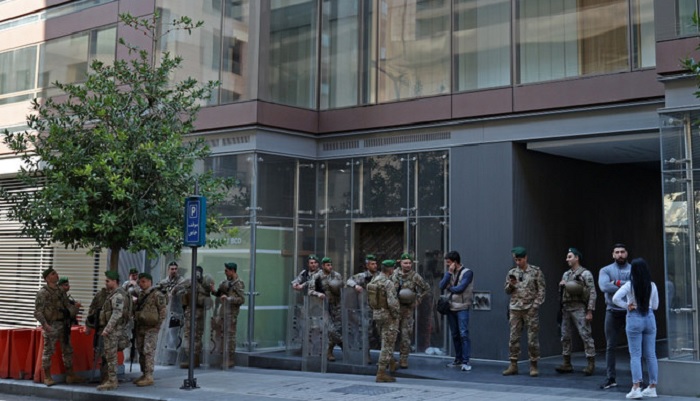DM Monitorng
Beirut: An assailant threw a Molotov cocktail — a bomb that consists of a bottle filled with flammable liquid — at Sweden’s embassy in Beirut, causing no casualties, Stockholm’s foreign minister and a diplomatic source said on Thursday, amid anger over recent incidents of the Holy Quran’s desecration.
“We confirm that there was a Molotov cocktail thrown at the facade of our embassy last evening, which did not explode,” a diplomatic source at the embassy said, requesting anonymity as they were not authorised to talk to the media. The “perpetrator managed to run away”, the source added.
Tensions have flared between Sweden and Muslim countries following several protests involving public desecrations of the Holy Quran in Stockholm — including setting pages alight.
Multi-confessional Lebanon saw protests at mosques, while the head of the powerful pro-Iran Muslim group Hezbollah has called for the Swedish ambassador to be expelled.
Lebanese security forces had bolstered measures around the embassy in downtown Beirut for fear of attacks. Swedish Foreign Minister Tobias Billstrom said “it was sheer luck that no one was injured” in Wednesday’s attack and that staff were safe.
“The incident is currently being investigated,” he said in a statement on Thursday, noting that “Lebanese authorities have an obligation under the Vienna Convention to protect diplomatic missions”.
Late last month, two Iraqi men set a copy of the Holy Quran alight outside the Swedish parliament in Stockholm, in an act similar to others in recent weeks that had drawn widespread condemnation.
Salwan Momika and Salwan Najem stomped on the holy book, set its pages ablaze before slamming it shut, as they did at a protest outside Stockholm’s main mosque in June.
The duo also staged a similar protest outside Iraq’s embassy in the Swedish capital on July 20, where they stomped on the religious text. The incidents have drawn strong reactions across the Muslim world, with several nations, including Pakistan, condemning the acts at international forums.
In July, the United Nations Human Rights Council approved a resolution on religious hatred, which was introduced by Pakistan on behalf of the 57-nation Organisation of Islamic Cooperation. The resolution called for the UN rights chief to publish a report on religious hatred and for states to review their laws and plug gaps that may “impede the prevention and prosecution of acts and advocacy of religious hatred”.
The same month, the UN General Assembly adopted, by consensus, a Moroccan resolution, co-sponsored by Pakistan, calling for countering hate speech and strongly deploring attacks against places of worship, religious symbols and holy books.
The resolution, titled ‘Promoting interreligious and intercultural dialogue and tolerance in countering hate speech’, won the approval of the 193-member assembly and stated: “Strongly deploring all acts of violence against persons on the basis of their religion or belief, as well as any such acts directed against their religious symbols, holy books, homes, businesses, properties, schools, cultural centres or places of worship, as well as all attacks on and in religious places, sites and shrines in violation of international law.”


